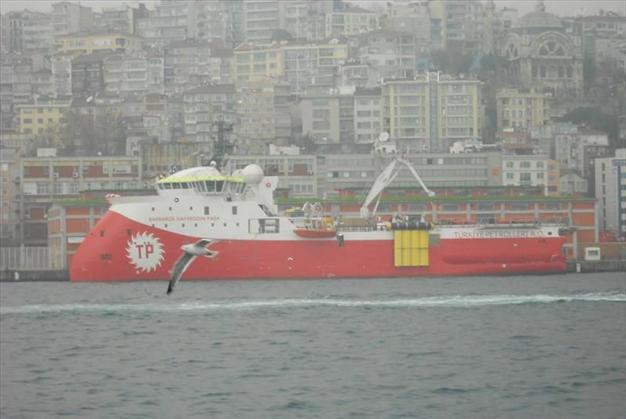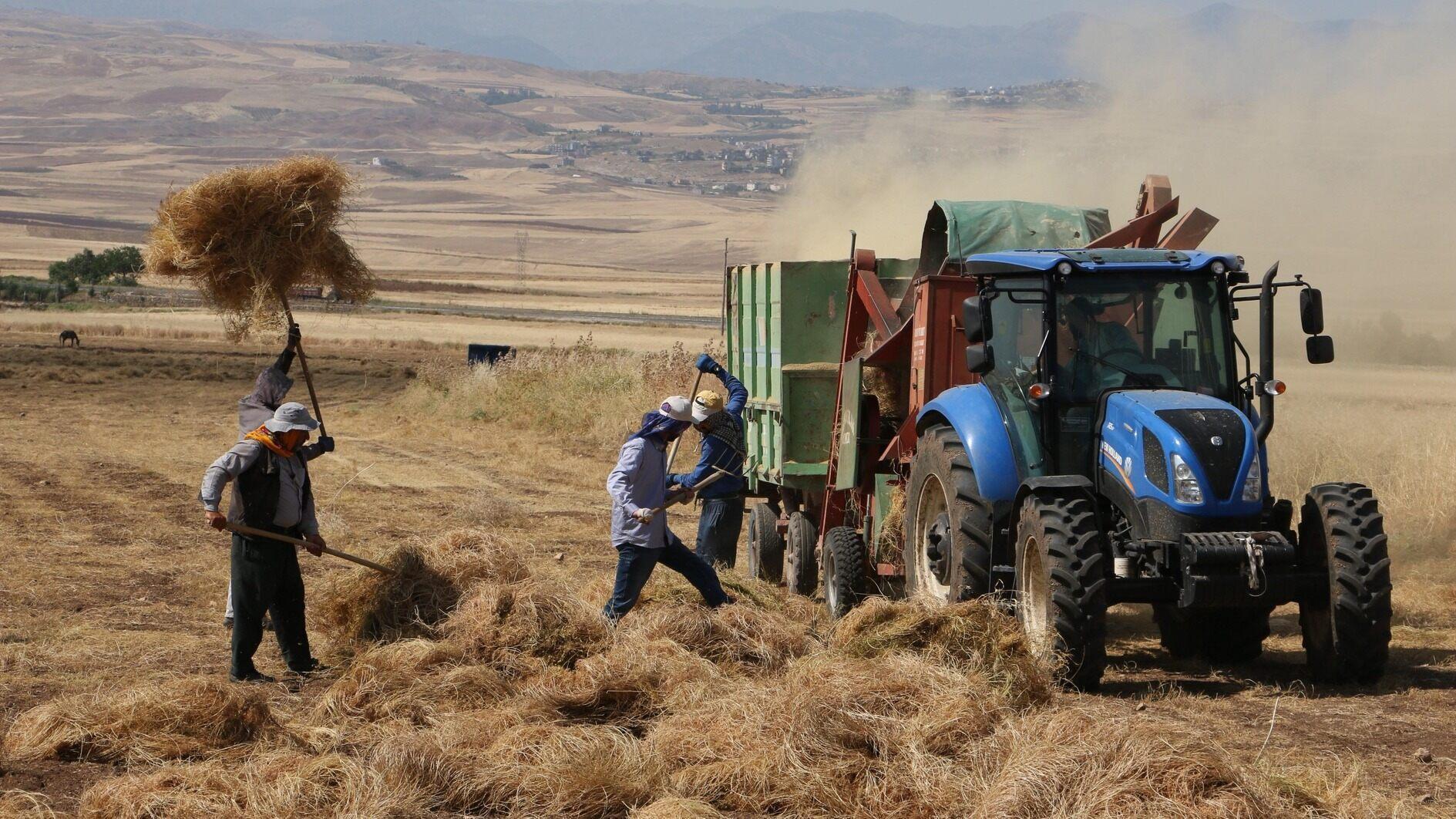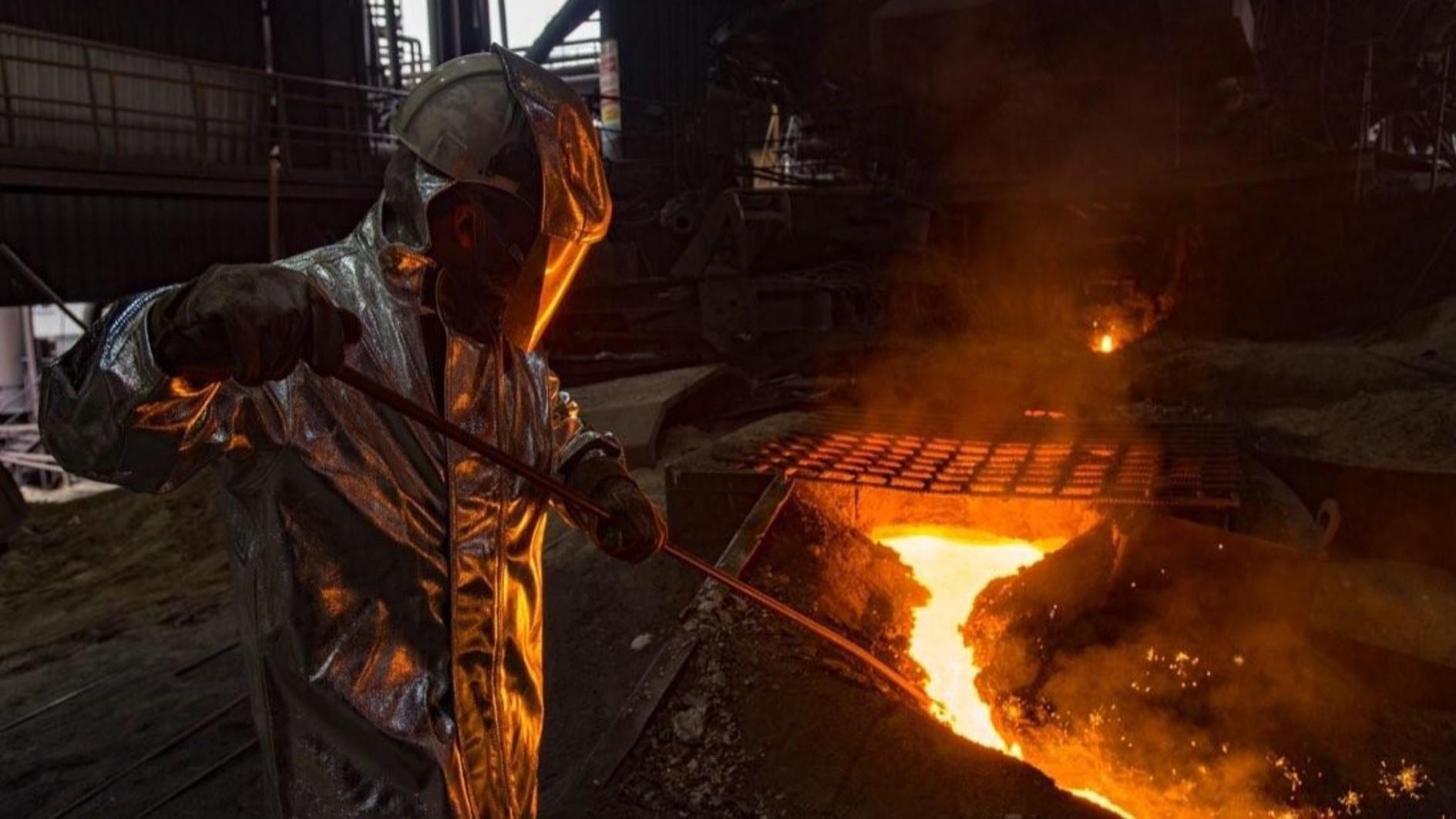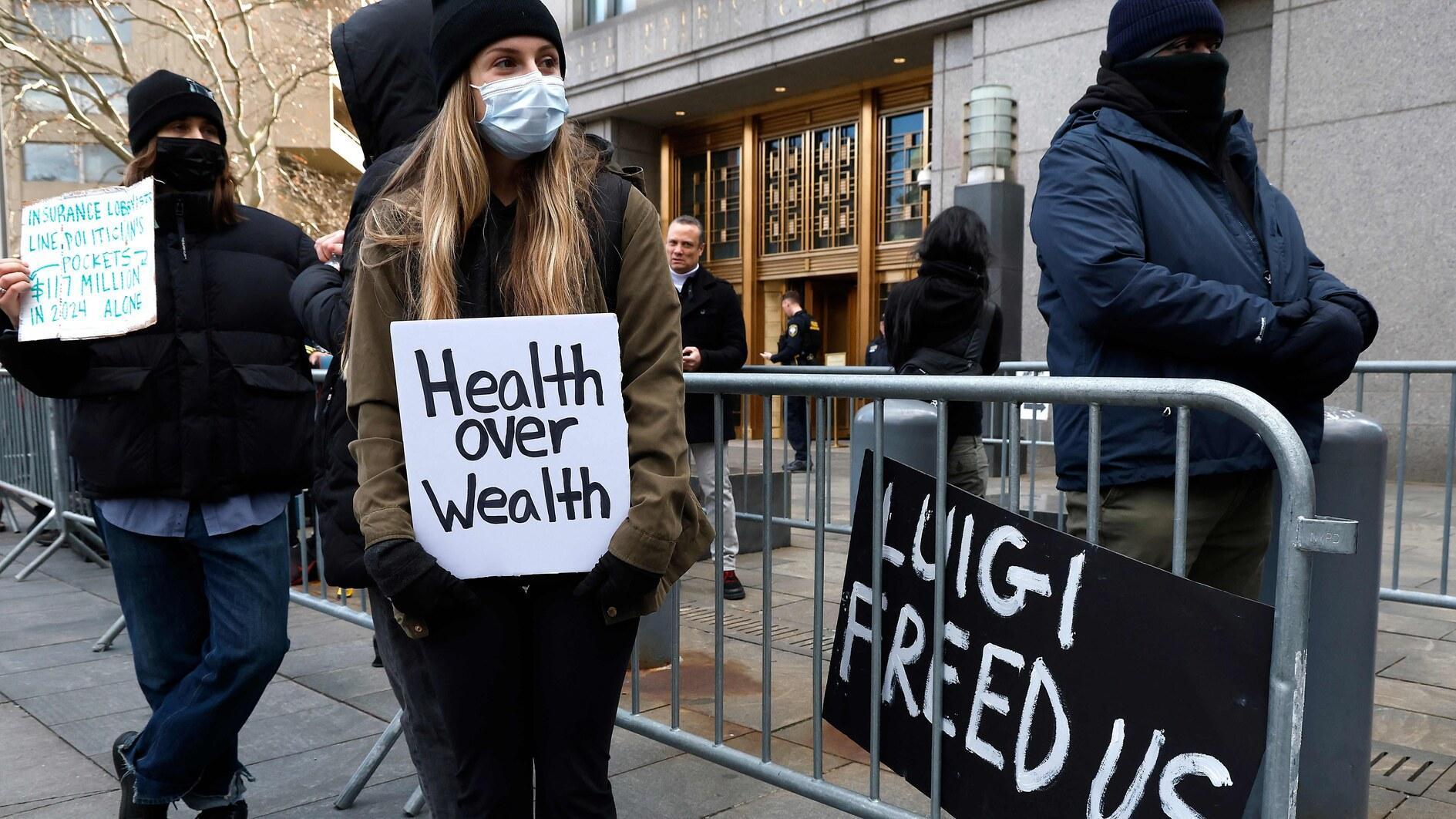Turkey ‘determined’ to continue gas exploration amid threats from Greek Cyprus
NICOSIA/ANKARA – Anadolu Agency

Barbaros Hayrettin, the Turkish fuel search ship, is now stationed off Cyprus. This image is taken from MarineTraffic.com.
Ankara has vowed to continue gas exploration activities off Cyprus, despite Greek Cyprus’ threats to block Turkey’s ongoing EU accession talks in an effort to bring a halt to the operations.“The Barbaros ship will continue to do its seismic studies [off Cyprus] … nobody should try to create a crisis,” Turkish Prime Minister Ahmet Davutoğlu told a news conference after holding a briefing meeting with Energy Minister Taner Yıldız over the issue late Oct. 21.
“We have the right to conduct seismic studies there, according to agreements signed between Turkey and the Turkish Republic of Northern Cyprus [KKTC]. We will always use this right,” Davutoğlu said.
Greek Cypriot authorities said Oct. 21 that the Barbaros entered their exclusive economic zone and intended to stay in the area according to a maritime advisory issued in early October.
Nicosia is unhappy that Ankara is searching for oil and gas in the same region where the Cypriot government has already licensed exploratory drills in an exclusive economic zone.
Earlier this month Greek Cyprus suspended its participation in U.N.-led peace talks launched in February, during which Greek Cypriot leader Nicos Anastasiades was to meet Turkish Cypriot counterpart Dervis Eroğlu.
However, Ankara disputes Greek Cyprus’ rights to a swathe of sea to the island’s south and southeast that are rich in natural gas reserves, demanding an equal share of resources between the two governments of the divided island.
Davutoğlu repeated Ankara’s call for a fair distribution on Oct. 21 and expressed willingness to seek a solution on such a basis.
“If we are going to agree on a solution, we should sit down at the table as soon as possible with our neighbor and friend Greece, Britain and the international community as guarantors and settle this issue. And these resources shall be used as resources of the unified Cyprus state. But if, they say, ‘These resources belong to us and the north belongs to you,’ then we should seek alternative solutions together,” Prime Minister Davutoğlu also said.
“You can’t encourage deadlock, pull out of political negotiations, start having other talks, blackmail Turkey and hold Turkey responsible for all of this. It is not an acceptable situation,” he added.
Greek Cyprus set to use EU leverage
Just hours before Davutoğlu’s statements, Greek Cyprus’ National Council announced details of measures they would be taking against Turkey in their session on Oct. 21.
Government spokesperson Nicos Christodoulides said President Nicos Anastasiades could submit a formal complaint against Turkey to EU leaders next week during a Council of Europe meeting in an effort to halt Turkey’s full EU membership process.
Greek Cyprus is a member of the EU and is internationally recognized by all nations except Turkey, which remains the only country that recognizes the Turkish Republic of Northern Cyprus.
The official measures against Turkey include a formal complaint to the U.N. Division for Oceans and Law of the Sea, the International Maritime Organization and possibly the U.N. Security Council, Christodoulides said.
Furthermore, the Greek Cypriot government will not give its approval to the opening of new chapters in Turkey’s EU accession talks, he added.
Meanwhile, Greek Prime Minister Antonis Samaras is set to visit Greek Cyprus on Nov. 7 to discuss the matter further.
Turkey expects EU to reject the complaint
“We will not let Turkey’s EU membership process be undermined by such outbursts,” Turkish EU Minister and Chief Negotiator Volkan Bozkır told reporters on Oct. 22.
Bozkır said he expected the EU to reject the complaint, which is intended to prevent the opening of new chapters in Turkey’s EU accession talks.
“In doing so, the EU will fulfill its responsibility toward Turkey,” he said.
Turkey, which first applied to join the bloc in 1987, must comply with 35 “chapters” setting out reforms needed to become a member. So far, 14 have been opened while 17 remain blocked and a further four have yet to be discussed.
“All chapters will be opened and closed within the next two years,” Bozkır said, adding that the process was continuing “as if all chapters have been opened.”
















